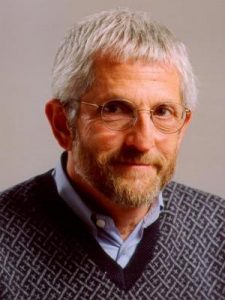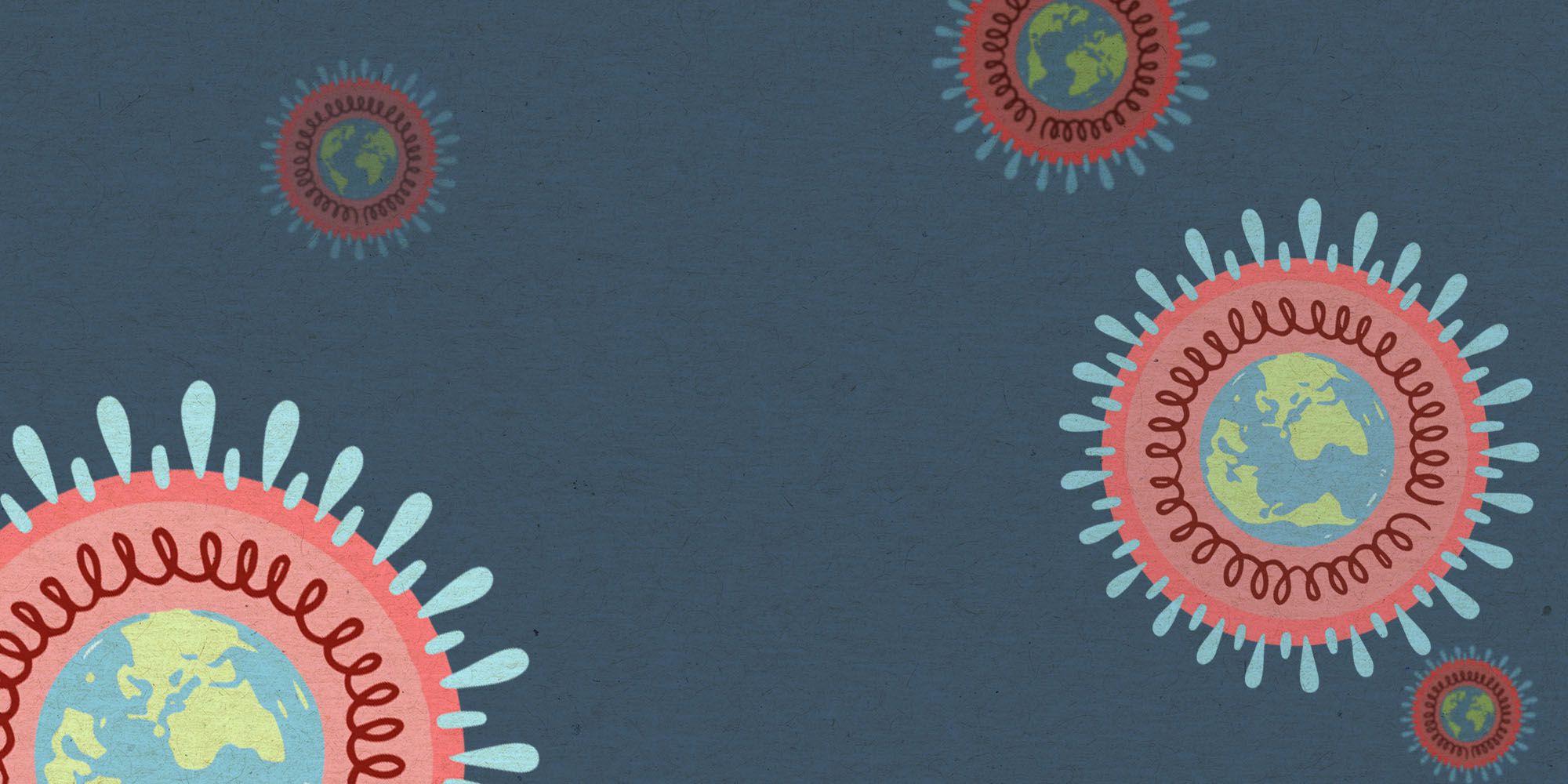
Fast Science: Vaccines and Trust During the COVID-19 Pandemic
In October 2020, Governor Gavin Newsom announced that California would be instituting a COVID-19 Scientific Safety Review Workgroup to independently review potential COVID-19 vaccines. The group was composed of nationally recognized immunization, public health, academic, and subject matter experts, who were tasked with making a recommendation to either accept or reject vaccines put forth by the Food and Drug Administration (FDA) and Center for Disease Control (CDC). The decision to allow individual states to review federal approval of vaccines was unprecedented. Many expressed concerns that it may delay the availability of a life-saving intervention.
This move highlights a critical challenge: How do we pursue rapid scientific innovation without compromising safety and quality?

This was the focus of a recent meeting of the Berkeley Ethics and Regulation Group for Innovative Technologies (BERGIT). Hosted by the IGI, BERGIT is a meeting ground for collaborations to integrate ethics, regulation, and policy with science. Their goal is to provide space for discussion, facilitate opportunities for collaboration, and instigate a proactive cultural shift in responsible innovation.
In November 2020, BERGIT hosted Arthur Reingold, MD, Division Head of Epidemiology at theUniversity of California, Berkeley, to discuss his role as Chair of California’s COVID-19 Scientific Safety Review Workgroup. Dr. Reingold began the discussion by posing a question to the group: In the midst of a highly polarized political climate, can we still trust federal and regulatory committees to do the right thing?
Fast science under political pressure
There is no doubt that the public’s confidence in regulatory agencies has been challenged. In 2020, Donald Trump touted the antimalarial drug hydroxychloroquine as a miracle cure for COVID-19, calling it “one of the biggest game-changers in the history of medicine”. At his behest, the FDA issued an emergency use authorization (EUA) for hydroxychloroquine and chloroquine to treat COVID-19 in March 2020. Just a few months later, the FDA revoked the emergency use authorization for hydroxychloroquine and chloroquine due to both lack of effectiveness against COVID-19 and the risk of serious side effects, including heart problems and liver failure. In a large, randomized clinical trial, researchers had found that neither medication reduced the number of deaths nor improved recovery time in people who were hospitalized with COVID-19.
The FDA’s decision to fast-track an emergency use authorization without the proper data eroded the public’s trust in their decision-making. It also left the medical and scientific community at odds with the regulatory agency for the first time in recent history: “This is a good example of how political pressure on a federal agency that has regulatory authority may have led it to do something prematurely,” says Dr. Reingold.
Previously, the fastest any vaccine had been approved was over the course of four years. The global mobilization of science and industry brought two COVID-19 vaccines through this process in less than one year. Though the technology behind the Pfizer and Moderna mRNA vaccines had been in development for over twenty years, it was the first time this type of vaccine had been vetted in clinical trials. While some considered it a great scientific feat, for others, the speed of vaccine development — and the unfortunate name of “Operation Warp Speed” — did not allay fears that they were being offered a vaccine that hadn’t been adequately tested.
Vaccine hesitancy and herd immunity
The scientific and medical communities are expected to present a united front when it comes to critical public health initiatives. Yet, a survey from the Kaiser Family Foundation showed that roughly 3 in 10 health care workers were hesitant to receive the COVID-19 vaccine.
“It is very concerning to me that any number of my medical colleagues say they are not going to get a COVID-19 vaccine in the first six months. They’re worried about safety. The politicization has had a devastating effect,” says Dr. Reingold.
According to recent polls, about 69% of Americans plan to receive or have already received a vaccine. While those numbers have risen since November, the remaining number of unvaccinated people could have dire consequences. The fear surrounding the safety and efficacy of vaccines could prolong an already brutal pandemic that has claimed millions of lives globally. Many hoped that enough people would be immunized for the population to acquire herd immunity, which occurs when enough people in a community become immune to the virus, either through immunization or by contracting the disease, that it can no longer spread. Herd immunity is crucial to protecting vulnerable members of the community who may not be able to receive vaccinations, including pregnant women, infants and young children, people who are immunocompromised, and those with allergies to specific vaccine ingredients. Unfortunately, the emergence of new COVID-19 variants and continued vaccine hesitancy could push the herd immunity threshold out of reach.

“Vaccines in general have become more politicized,” says Lea Witkowsky, Ph.D., Policy Analyst at the IGI. “In an effort to combat this politicization, there has been a resounding effort to declare the vaccines ‘safe.’”
But how do we determine that a vaccine is safe?
All medical interventions contain a certain amount of risk. Vaccines are no exception. Individuals have to weigh the risks of experiencing infection against the very small risk of experiencing harmful side effects. But vaccines aren’t just about individual choices — choosing not to vaccinate due to personal preference may end up costing someone else their life.
“We’re hoping that an extra level of review by people who do not work for the federal government can be reassuring because having a vaccine doesn’t help us at all if people don’t take it,” says Dr. Reinhold in a later interview with NBC. “We would have to be powerfully moved that there was something wrong with the process for us to say something different than what the FDA and CDC are saying.”
Both the Pfizer and Moderna vaccines were authorized for emergency use in late 2020 and have been deemed safe by federal regulatory agencies as well as the COVID-19 Scientific Safety Review Workgroup. Clinical trials conducted by Pfizer and Moderna have demonstrated about 90-95% efficacy at preventing both mild and severe forms of COVID-19 — an amazing accomplishment. Investigations into the efficacy of these vaccines outside of clinical trials are ongoing and doubts remain.
Regaining public trust
A question brought up often during the discussion was whether the creation of a separate state workgroup to vet the FDA and CDC’s work would successfully reassure the public of the vaccine’s safety or instead sow seeds of distrust.
A larger issue at play is the growing crisis of institutional legitimacy. For years, the United States had to contend with a president that is anti-science. When the pandemic hit, Trump downplayed the severity of the virus to his supporters and undermined public health guidance to promote his personal agenda. Many Americans renounced trust in their own state governments and regulatory agencies and showed their misgivings by refusing mask mandates and boycotting stay-at-home orders. These actions allowed the virus — and doubts about scientific claims from the federal government — to spread throughout the United States at a rapid pace.
And the palpable failure of our healthcare system to provide care for all Americans only exacerbates the general sense of distrust in science and medicine, creating even more opportunities for misinformation campaigns.
Dr. Deborah Birx gave a sobering interview with CNN in March 2021 to discuss her time as the former White House coronavirus response coordinator under the Trump administration. When asked about the administration’s pandemic response, she shared a stark conclusion: “I look at it this way. The first time we have an excuse,” Dr. Birx says. “There were about a hundred thousand deaths that came from that original surge. All of the rest of them, in my mind, could have been mitigated or decreased substantially.”

Science has always relied on peer review to evaluate new research. According to Jodi Halpern, M.D., Ph.D., Professor of Bioethics and Medical Humanities in the Joint Medical Program and the School of Public Health at UC Berkeley, external review panels like the COVID-19 Scientific Safety Review Workgroup could build on the public’s trust in emerging science and potentially act as a model for other fields.
“The important thing to recognize is that the scientific community isn’t trying to manufacture trust,” says Dr. Halpern. “What we need is trustworthy vaccine development, which is strengthened by how we translate the science, not by telling the public what to think.”
COVID-19 vaccines are now available for every Californian aged 16 and up. Visit COVID19.ca.gov for more information.
To receive news about the next BERGIT meeting and take part in these crucial conversations, join the BERGIT email list.
 By
Alison Irvine
By
Alison Irvine


